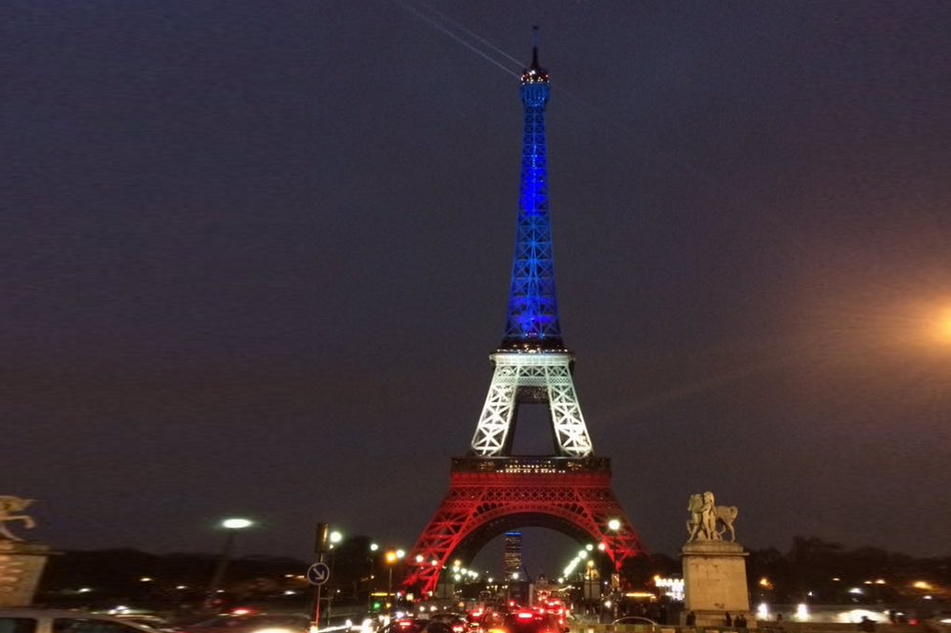Seventeen UConn students and one faculty member were in Paris Friday evening when three teams of terrorists staged coordinated attacks throughout the city, leaving 129 people dead and more than 350 people wounded.
The students included 12 undergraduates participating in the UConn in Paris Education Abroad program, one graduate student, and four undergraduate students who were in the region and were visiting Paris at the time.
All of the UConn students and the faculty member are safe and accounted for, according to University spokeswoman Stephanie Reitz.

On Monday evening, three days after the attacks, UConn Today checked in with Roger Célestin, a professor in the Department of Literatures, Cultures, and Languages who leads the UConn in Paris program, to see how the students are faring, as Paris begins to right itself.
“[The students] are fine and are attending classes [at the University of Paris],” Célestin said. “We had a meeting on Sunday and will be having brunch as a group next Sunday; during the week I will see some of them who are taking my class, an independent study with me, or are dropping by the resident director apartment. We have instituted an end-of-day email or text notifying me that they are ‘in for the day’.”
At the meeting, he said, the group discussed the need “to find a way of being in Paris that navigates between the two extreme poles of hysterical paranoia and foolhardy self-assurance.” All who attended the meeting felt that they were able to do this, he added.
Célestin noted that the students have been communicating with their parents and friends both in France and in the U.S. He said their parents can call him or he can call them at “any time at all,” and that the Education Abroad program can put people directly in touch with the students, if need be.
The Nov. 13 attacks struck at least six locations throughout the city of Paris, including the Bataclan, a major concert venue; the Stade de France soccer stadium; and several restaurants and bars, almost simultaneously.
In a response to the Hartford Courant, which he also sent to the University, Célestin said he was having dinner with friends in Le Marais, a neighborhood in central Paris not too far from where the attacks took place, at the time. After learning of the attacks, he immediately began walking back to his apartment and making calls to each student. His assistant was also in the process of contacting the students.
“This is standard procedure for UConn in Paris,” he said. “All students are given a cell phone on the day they arrive; they are asked to keep it charged and to carry it at all times.”
During the weekend, Célestin instructed the students to stay home or close to home. They live in a neighborhood in the southern end of Paris, far from where the attacks took place.
Célestin, who lives in Manhattan when in the U.S., said the situation brought back memories of 9/11. “We all pretty much stayed home and watched the news/checked the Internet, spoke to one another. The situation reminded me of 9/11 in Manhattan, where I live: the desire to just stay indoors and watch/listen to the news and eat and drink just what is available in the apartment.”
On Monday, the first “regular” day since the Friday evening attacks, the University of Paris was open, classes were scheduled, and the students attended, Célestin said. Of the 12 students participating in the UConn in Paris program this fall, one may wish to return prior to Dec. 13, the official end date of the program, and Célestin is looking into this.
The general mood in Paris, he reported, is “between absolutely normal – people shopping for food, walking in the streets, taking buses, sitting in restaurants, going to the movies, garbage being picked up – and strange: the Eiffel Tower going from dark over the weekend [in tribute to the victims] to a vibrant red, white, and blue [Monday] evening, [and] 10 times more policemen and soldiers in some neighborhoods and locations. ”



